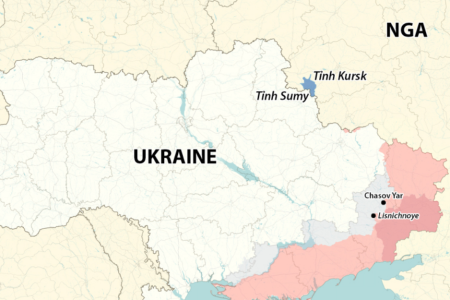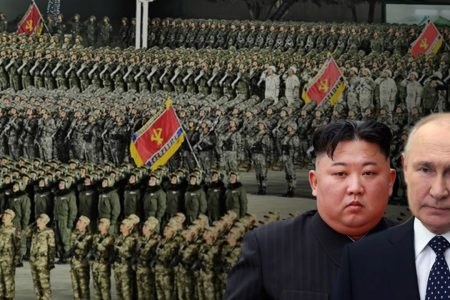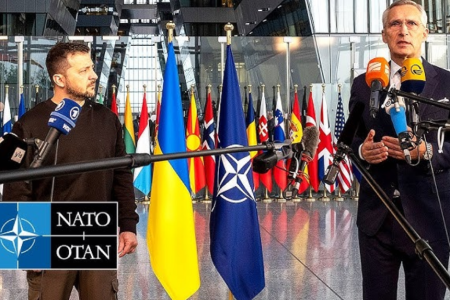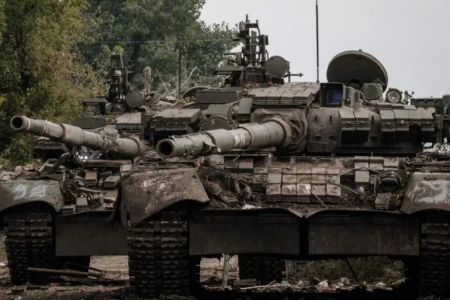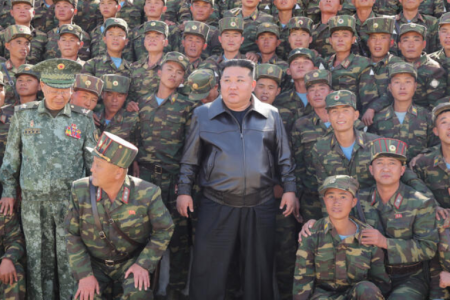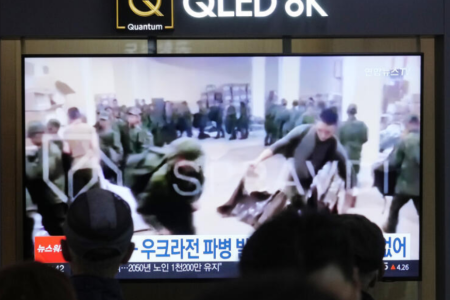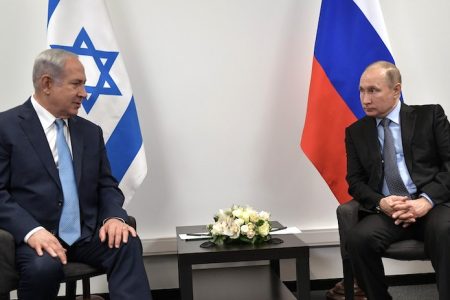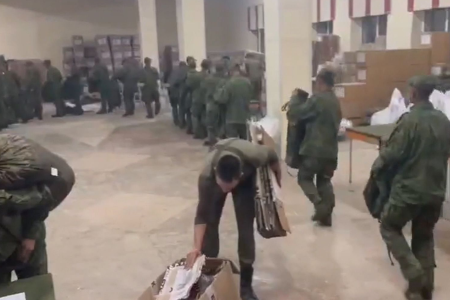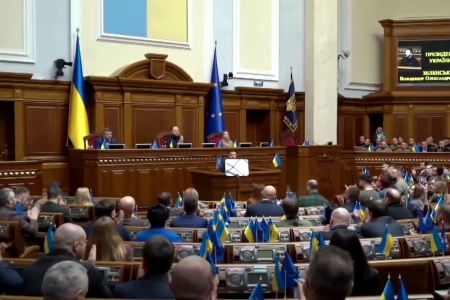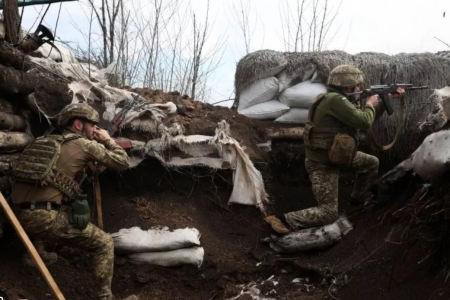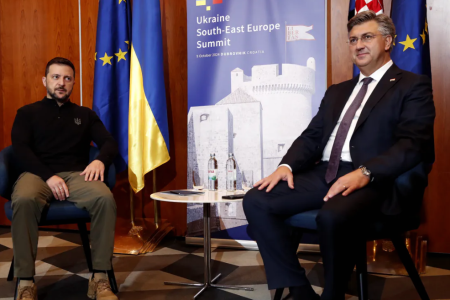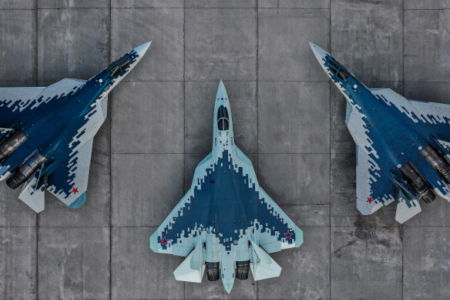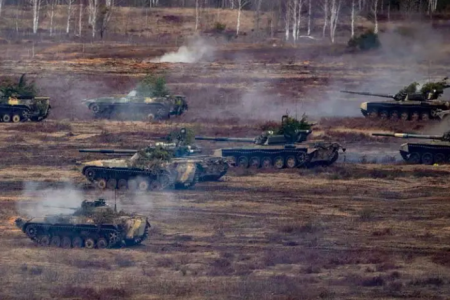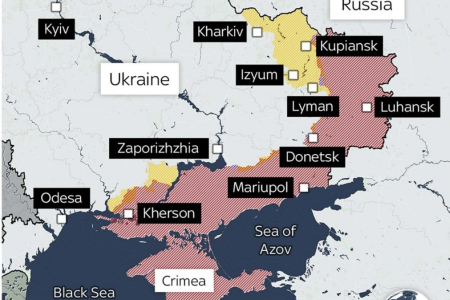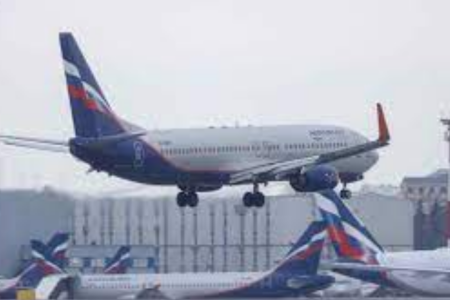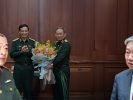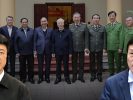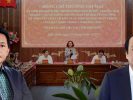
The idea that US aircraft carrier visits Vietnam on March 5 shows that the US affirms its presence in the East Sea (South China Sea), despite the new move of the Philippines, and upholding the role of Vietnam.
The second visit of US aircraft carrier to Vietnam took place immediately after the President of the Philippines said that he had officially informed the US of the possibility of terminating the Visiting Force Agreement (VFA) signed in 1988.
The Philippines’ decision to restrict military cooperation with the United States has raised concerns among Southeast Asian countries about the absence of US military presence in the East Sea while China has increasingly overwhelmed.
In this situation, what are the messages from the US ship’s visit to Vietnam?
On 3/3, Professor Carl Thayer from Australia said:
“Washington will negotiate separately with the Philippines to prevent the termination of the VFA between the US and the Philippines since 1988. This agreement provides a legal basis for the temporary deployment of military forces. US aircraft carriers and other large warships regularly visit the Philippines.”
“It is likely that Vietnam will approve the visit of the US aircraft carrier before such a move by the Philippines. But if relations with the Philippines deteriorate to the point where VFA is terminated, this will raise the importance of US access to Vietnamese ports on a regular basis to strengthen their presence in the East Sea.”
“This requires Vietnam to change its policy of allowing foreign ships to dock each year. The US will intensify its lobbying efforts with Vietnam to ensure this goal,” Professor Carl Thayer said.

“Unfortunately, the proposed ASEAN-US Summit in mid-March has been postponed. This is a lost opportunity for President Donald Trump to raise this issue in private to Prime Minister Nguyen Xuan Phuc, who is expected to attend this meeting.”
“U.S. policy documents also identify Vietnam as a priority strategic partner. USS Theodore Roosevelt’s visit is a testament to the US commitment to the region and its presence in the East Sea is welcomed by Vietnam.”
Recalling the first visit to Vietnam by the aircraft carrier USS Carl Vinson in 2018, Carl Thayer said that this second visit of the USS Theodore Roosevelt took place after the confrontation between Vietnam and China at Vanguard Bank emphasized an important statement in the Vietnam Defense White Paper 2019 that Vietnam will consider developing appropriate and necessary military and defense relations with other countries.”
According to Professor Carl Thayer, in a series of strategic policy documents, the United States has identified China as the main competitor. In 2019, the US became more bitter, accusing China of bullying and threats in the East Sea.

“The US Pacific Command has a long-term policy of conducting regular and continuous patrols in the East Sea. The visit of USS Theodore Roosevelt is an example of this policy being implemented.”
“The US is proving that it will fly and send ships to the East Sea where international law allows. This is a direct challenge for China to find ways to push foreign nations out of the waters. is within the nine-dash line that they have drawn themselves,” Professor Carl Thayer analyzed.
“A press guide issued by Vietnam’s Ministry of Foreign Affairs at the end of February shows that Vietnam wants the upcoming visit to be kept with little attention.” Professor Carl Thayer said.
He recommended that the press instructions sent to reporters in Vietnam only mentioned the visit of US naval ship, not the aircraft carrier.”
The guide also wrote that reporters “were invited to listen to short statements and ask questions at a quick press conference” on March 5, and “Information about this visit was not made public until when there are new announcements.”

During this visit, in addition to USS Theodore Roosevelt’s aircraft carrier fleet, there was the 11th squadron of the US Navy Air Force.
The escort squadron of the USS Theodore Roosevelt carrier fleet included a Ticonderoga-class cruiser – the only US cruiser class in use.
USS Theodore Roosevelt was the fourth US Navy Nimitz-class aircraft carrier, launched in 1986 and first engaged in Operation Desert Storm in 1991. The ship ran on nuclear power, with a length of about 330 meters and is the accommodation and working place of more than 5,000 crew members. The vessel can carry up to 90 aircraft of all types including fixed-wing aircraft and helicopters. The most common type of fighter on this aircraft carrier is the F/A-18 Hornet.
This is like a floating city with a tonnage of 100,000 tons, with a staff of 3,200 people and a staff of 2,480 flight crew.
In 1991, the Iraqi air raid during Operation Desert Storm. In 1999, the same carrier launched attacks on Kosovo and Serbia.
Following the September 11, 2001 terrorist attacks, USS Theodore Roosevelt was deployed to the Middle East and participated in the first airstrikes on Al Qaeda and Taliban terrorist networks.
In addition to the system of servicing fighters, ships such as this floating city can filter more than 1,500 cubic meters of water a day from seawater, an amount sufficient to supply about 2,000 households.

Two years later, fighters from USS Roosevelt attacked the target in Iraq in the early days of the Free Iraq campaign.
The ship’s self-defense system is a Sea Sparrow rocket launcher, used to counter enemy air attacks at close range.
Currently the US Embassy in Hanoi is working with Vietnam’s Ministry of Foreign Affairs to prepare for the visit, and is waiting for a final decision from the host country of Vietnam.
It is expected that when the US aircraft carrier visits Vietnam for the second time at the port of Da Nang, it will also take place the same activities as when the USS Carl Vinson arrived, including meetings and joint training between the two military personnel, and community-based activities, cultural exchanges between the crew and the locals.
According to the description of the domestic press, the people of Danang in particular and the Vietnamese in general were very excited and had a good impression about the visit of the USS Carl Vinson in early 2018.
Vice Admiral – Fleet Commander 7 Phillip Sawyer, US Ambassador to Vietnam Daniel Kritenbrink, Rear Adm. John Fuller are welcome at Tien Sa port, Da Nang, on March 5, 2018

The family of Mr. Nguyen Van Nhan, 59 years old, was once involved in the war in the past. “Living under wartime and when the country is as peaceful as today, I think the past is a thing of the past. They (Americans) came here and exchanged culturally openly, honestly with me, I just accepted it.” Nhan said.
Nguyen Minh Nhat, a 26-year-old employee of a computer company, compared the spirit of the “USS Carl Vinson photo-hunting and shooting movement” on this occasion as exciting and interested as when the people of Da Nang pulled out the way to welcome President Trump’s convoy to this city for APEC at the end of 2017. “Many of my friends asked to join the group to find the place to observe the vessel, and this topic is mentioned quite a lot on social networks.”
According to Minh Nhat, the benefits that the US actively promotes such as prosperous economic development, opportunities coming from ordinary economy and freedom of movement and circulation at sea … “are all appropriate factors, necessary for the development of Vietnam.” “Vietnam needs a friend and partner like the US. In addition, for Danang people, they already know and get used to the American presence here,” Minh Nhat said.
Every year, the US aircraft carrier has visited Vietnam, which has marked the move of Hanoi authorities to get closer to the US, which is necessary to confront a growing and aggressive China in the East Sea.
If the Vietnamese side courageously moves toward democratizing the country, then military cooperation with the US and Western Free Countries will raise new heights, that is, become an ally of each other. At that time, China cannot continue to “bully” Vietnam like it does at present and Vietnam’s sovereignty will be firmly protected.
Trung Nam from Da Nang – Thoibao.de (Translated)



